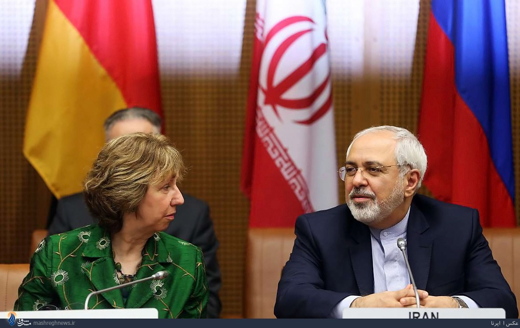With a November 24 deadline for Iran and P5+1 to reach a final deal on Tehran’s nuclear program approaching fast, there are widespread speculations on whether parties to the talks will meet the deadline or the negotiations will be extended. The Iranian Student Correspondents Association (ISCA) posted an analysis on the issue on its website on November 13. The following is the translation of the analysis:
One year on since Iran and P5+1 launched intense nuclear talks, conclusion of a comprehensive deal is still anything but certain. On November 24, 2013, Iran and six world powers inked an agreement under which Tehran was to limit part of its nuclear program in exchange for targeted reduction of sanctions.
Several rounds of talks have since been held between Iran and permanent members of the UN Security Council and Germany, and extensive efforts have been made to narrow the gaps. As part of those efforts, 13 days ahead of the deadline US Secretary of State John Kerry, his Iranian counterpart Mohammad Javad Zarif and EU coordinator Catherine Ashton flew to Oman – a mediator – and met at a luxury hotel in Muscat in their bid to clinch a deal.
Muscat, the capital of neutrality in the Middle East, once again served as a go-between in relations between Iran and the US in order to play a role in the nuclear deal and thus make its presence felt on the international stage, score a victory on the diplomatic front, and win a trump card at home.
High-level talks in Muscat were tough and there were no media reports on what was going on in the negotiations. Although, the Omanis believed that the talks were making progress, after the talks the Iranian foreign minister said eventually progress would be made. His American counterpart said efforts were underway, but characterized the talks as neither good nor bad. But the Russians said that a final deal was now possible and that unprecedented results had been achieved.
Anyway, John Kerry, Mohammad Javad Zarif and Catherine Ashton held intense talks to patch up differences over the removal of sanctions and enrichment levels. All efforts in Muscat were meant to pave the way for a final deal. Some French diplomats said that an agreement would be reached. Asharq al-Awsat [an Arabic international newspaper headquartered in London] reported the Oman talks showed that a deal was near and that the agreement would be made public in due time: November 24.
Still some experts believe that the agreement that will likely be struck in Vienna on November 24 won’t be a comprehensive one; rather it will be part of a step-by-step deal which will allow the two sides to put forth more proposals in the course of coming months. It will come as an interim deal based on limited easing of sanctions is signed. A deal which is more detailed than the Geneva Interim Agreement.
